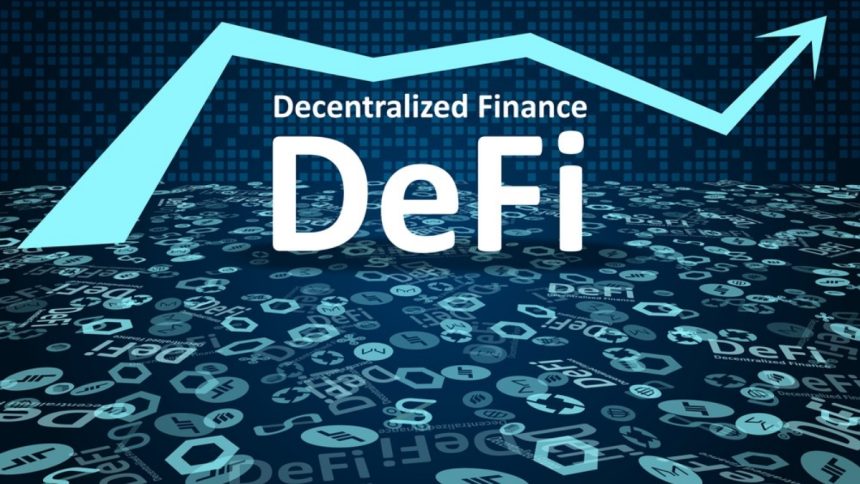Thanks to the continued advancement of technologies such as Artificial Intelligence and digital currencies, banking has changed substantially. It has shifted from traditional brick-and-mortar institutions toward decentralized, digital-first models. At the center of this has been Decentralized Finance (DeFi), which has further challenged conventional banking by eliminating intermediaries and giving users greater control over their financial assets.
With the rapid adoption of blockchain technology, global digital banking companies like Black Banx continue to reshape global banking. Black Banx, founded by billionaire Michael Gastauer, has already demonstrated how fintech can bridge gaps in financial inclusion, streamline cross-border transactions, and embrace digital assets. But what role will DeFi play in further transforming banking, and how can pioneers like Black Banx push the boundaries even further?
Understanding DeFi and Its Impact on Traditional Banking
Decentralized finance refers to a financial system built on blockchain technology that operates without central authorities, such as banks or payment processors. Instead, DeFi relies on smart contracts—self-executing code that automates financial transactions—to offer services like lending, borrowing, and asset trading.
This approach provides several advantages over traditional banking:
- Greater Accessibility: Anyone with an internet connection can access financial services, removing barriers for the unbanked and underbanked.
- Lower Costs: Without intermediaries, transaction fees are significantly reduced.
- Enhanced Transparency: Blockchain’s open ledger ensures that all transactions are verifiable and secure.
- Speed and Efficiency: DeFi transactions settle in real time, unlike traditional banks, which may take days to process cross-border transfers.
Given these benefits, it’s no surprise that the DeFi market has exploded, with billions of dollars locked in decentralized protocols. However, while DeFi presents incredible opportunities, it also comes with challenges—regulatory uncertainty, security vulnerabilities, and scalability concerns being chief among them.
How Black Banx is Embracing DeFi Principles
Black Banx is not a full-fledged DeFi platform, but it embodies several key principles of decentralized finance. By leveraging blockchain technology, cryptocurrency integrations, and borderless digital banking solutions, the company is already disrupting traditional finance in ways that align with DeFi’s core mission.
1. Facilitating Crypto-Powered Banking
One of Black Banx’s standout innovations is its real-time cryptocurrency trading platform. By integrating networks like Solana and the Lightning Network, Black Banx enables near-instant transactions, a key benefit of DeFi. These integrations allow customers to seamlessly trade, send, and receive crypto assets across borders with minimal fees.
As DeFi adoption grows, Black Banx is well-positioned to expand into crypto-based lending services and decentralized finance applications (DApps), offering more customers the ability to engage in non-traditional banking activities.
2. Advancing Financial Inclusion Through Digital Banking
One of the most pressing challenges in global finance is the lack of access to basic banking services. Over 1.4 billion people worldwide remain unbanked, particularly in developing regions. Black Banx has already made significant strides in closing this gap, expanding its customer base to 69 million users across 180+ countries by the end of 2024.
Black Banx’s ability to offer instant account creation, multi-currency options, and crypto transactions aligns perfectly with DeFi’s mission of banking the unbanked. By incorporating DeFi lending platforms, Black Banx could take this a step further—allowing users to secure loans without credit checks by using crypto assets as collateral.
3. Enhancing Cross-Border Transactions
Traditional banking systems are notorious for slow, expensive cross-border payments. Black Banx has tackled this issue head-on by offering instant global transactions in multiple fiat and crypto currencies. In 2024, its annual revenue reached $11.1 billion, in part due to increased adoption of digital asset banking.
By integrating DeFi-based payment networks, Black Banx could further reduce costs and improve speed, allowing businesses and individuals to send money globally with even greater efficiency.
Present Challenges and What Lies Ahead
While DeFi presents immense opportunities, it’s not without obstacles. Here are some key challenges that fintech companies like Black Banx must navigate:
1. Regulatory Compliance
Governments worldwide are still figuring out how to regulate DeFi. Black Banx, which secured a U.S. federal banking license, has shown that it can operate within regulatory frameworks while embracing innovation. Moving forward, a balanced approach—one that merges DeFi’s decentralization with necessary regulatory oversight—will be crucial.
2. Cybersecurity and Fraud Prevention
Security risks remain a significant concern in the DeFi space. Black Banx has already implemented AI-powered fraud detection systems, which helped improve its cost/income ratio to 68% in 2024. Strengthening smart contract security and educating users on safe DeFi practices will be vital in mitigating risks.
3. Bridging Traditional and Decentralized Finance
Despite DeFi’s advantages, traditional banking still plays a crucial role in global finance. Black Banx is uniquely positioned to act as a bridge between these two worlds, offering customers the best of both centralized and decentralized banking services.
What’s Next for Black Banx in 2025 and Beyond?
With ambitious goals to surpass 100 million customers by the end of 2025, Black Banx is well on its way to further disrupting global banking. Here’s what to expect:
- Deeper DeFi Integration: Expanding crypto-based lending and blockchain-powered payment solutions.
- More AI-Driven Efficiency: Further reducing costs and enhancing operational effectiveness.
- Expanded Global Reach: Strengthening presence in key fintech markets, including Africa, Asia, and North America.
- Sustainability in Finance: Developing more eco-conscious financial products, aligning with Environmental, Social, and Governance (ESG) initiatives.
Decentralized finance, even at what can be considered the early stages of its existence, isfundamentally changing how people interact with money. As companies like Black Banx continue pushing the boundaries of digital banking, the potential for financial empowerment and inclusion grows exponentially.
With its substantial pre-tax profit in 2024, aggressive expansion strategy, and dedication to innovation, Black Banx is already playing a pivotal role in shaping the future of fintech. By incorporating more DeFi solutions, the company can take its impact even further—providing users with greater financial freedom, lower costs, and seamless access to banking services, no matter where they are in the world.
Lynn Martelli is an editor at Readability. She received her MFA in Creative Writing from Antioch University and has worked as an editor for over 10 years. Lynn has edited a wide variety of books, including fiction, non-fiction, memoirs, and more. In her free time, Lynn enjoys reading, writing, and spending time with her family and friends.















